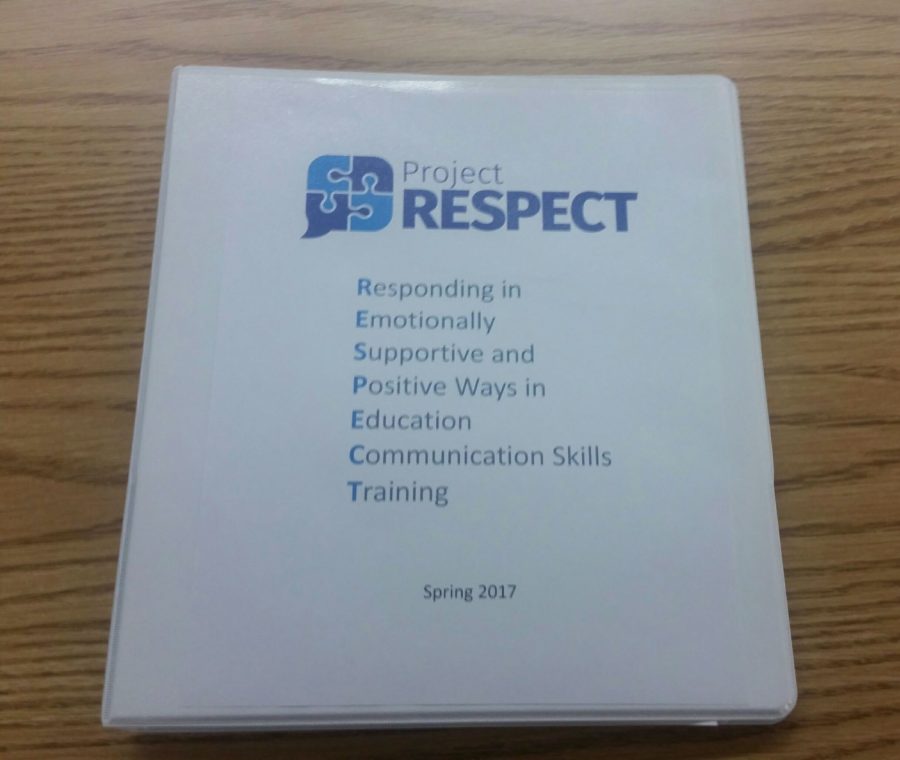RESPECT’ing their craft: Teachers participate in Penn State research study
The Project RESPECT program binder holding its materials.
February 28, 2017
Many teachers are so devoted to their craft they consistently attempt to be do what they can. To facilitate this growth, they attend in-services and participate in various forms of professional development.
Ten teachers were recently afforded the opportunity to participate in a research study conducted by Penn State University called Project RESPECT.
“The teachers here were chosen randomly to partake in the study,” seventh grade world geography teacher Shawn Cerully said.
Teachers from mostly seventh grade were chosen, but the opportunity was available for each grade level teacher. Project RESPECT’s goal is to help teachers implement non-violent communication, learn strategies to de-escalate conflict, communicate effectively with difficult students and parents to build positive relationships and rapport, instill a “growth” mindset in unmotivated students and learn research-based strategies for managing the day-to-day stress in the classroom.
During a teacher’s training, there are some similarities and some differences. Project RESPECT builds on each teacher’s pre-existing knowledge of best practices and thought processes in the classroom.
“I think that everyone’s college experience is different. I would recommend the project to some people who weren’t exposed to the same things I was in college,” seventh grade world geography teacher Karen Kustaborder said. “However, I believe that it is helpful to other teachers, mainly because they might not have taken psychology in college.”
Teachers are selected and will be videotaped while teaching. They are also required to attend meetings with study administrators. The study for teachers goes through the end of March.
“I think the study is a couple of years in the making. I believe they said that we were phase two and the entire project lasts throughout several years and has several phases,” Kustaborder said.
Teachers participated in a variety of activities during the training and learned with ten teachers from the high school.
“I think my favorite part was the interaction with peers and the people who were conducting the training. Another good part was definitely watching the role playing. It was very interesting,” seventh grade science teacher Joel Gilbert said.
Some of the concepts learned might not be known to teachers since they deal with psychological principles. But they might affect how educators think about each instruction.
“It’s really about our everyday interaction with kids, so it’s not necessarily something I do in everyday action, but it’s a mindset that I would use every day,” Cerully said.
Even though the study for district teachers lasts only a few months, it is possible that the effects of the study will last much longer. Since the research may be used to develop teaching programs for the future, the results may endure much longer.
To “respect” teachers who volunteer for research is to not only improve the future of education, but to reflect on their own presence in the classroom for the betterment of their students.
More information regarding the study can be obtained at http://respect.educ.psu.edu/

Mackenzie Kelley • Mar 15, 2017 at 10:07 am
The leprechaun is in the artical Respecting their crafts : Teachers participate in Penn State research study.
Mackenzie Kelley • Mar 15, 2017 at 9:54 am
I found it!
duane smith • Mar 15, 2017 at 7:53 am
standing by light post project respect sounds like a good idea
duane smith • Mar 15, 2017 at 7:52 am
found it